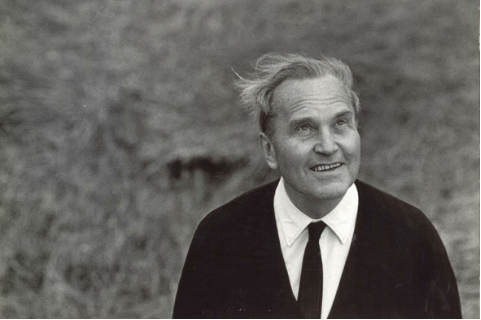After presenting the tension inherent in the philosophy of history of Jan Patočka and the way of overcoming this tension by appealing to his anthropology and cosmology, I will turn in the heart of this article to the examination of the possibility of an ethical historical development of humanity. There is a space which allows humanity to development in an authentic way, that is, which allows it to enter into genuine history by leaving behind the technical regime of its own self-understanding, which may be its greatest danger, in particular because it leads to war. Nonetheless, it is possible to formulate at least two objections to the attempt to understand humanity from an ethical standpoint.
First, couldn’t one reproach Patočka for marginalizing the condition of plurality, which is so essential for the ethical dimension of humanity? In effect, by placing excessive value on the sacrifice of and devotion to the other, Patočka could be led to devaluing the necessity for everyone to affirm him or herself just as he or she is with others and to overemphasizing self-forgetting for the benefit of others. Is the course of history, in which subjectivities can stand up for themselves, compatible with a strictly moral aspiration of humanity?
Second, one may also wonder whether the moral valorization of sacrifice is sufficient for remedying the potentially violent conflicts that characterize human existence. Is it really possible to conceive a moral fulfillment of humanity through sacrifice without taking into account the reality of war, without considering the antagonistic character of historical existence? If the answer to these last two questions were negative, we would have to conclude that Patočka’s morality of sacrifice turns out to be inadequate and impotent when it comes to orienting the historical development of humanity against the danger of its technification.
This twofold difficulty warrants staging a dialogue with Hannah Arendt insofar as she calls attention, on the one hand, to the need for understanding history outside a moral imperative, particularly in order to preserve human plurality qua plurality; and, on the other hand, to the problematic and controversial nature of (historical) action when it comes to being able to regulate history without yearning for an impotent idealism.
The non-moral development of history, however, does not preclude, for Arendt, the possibility of ethically orienting its course. Therefore, the confrontation with the Arendtian analyses should help us to better understand and highlight the real importance of plurality for Patočka – in particular through the figure of the “solidarity of the shaken” – and the acknowledgment of the ontologically polemical dimension of human history. In this way, one could show how Patočka’s ethics can orient the course of human history, not only because his ethics respects plurality, but also because it takes the polemical character of human relations seriously. One could even suggest that Patočka radicalizes the deep nature of human antagonism more than Arendt by inscribing it on the level of being itself. However, this remains to be demonstrated.
In light of the foregoing, I will proceed to lay out the anthropological-cosmological prolegomena in order then to show how Patočka calls for an ethical orientation of human history. This proposal requires a confrontation with Arendt’s philosophy in order to respond to two possible objections regarding the fulfillment of such an ethics and to better understand its meaning.
